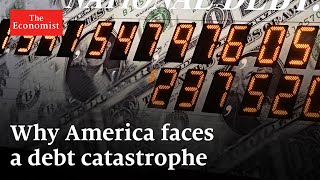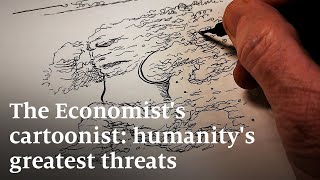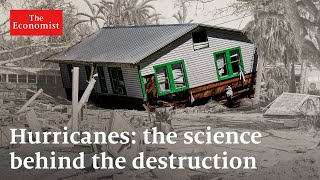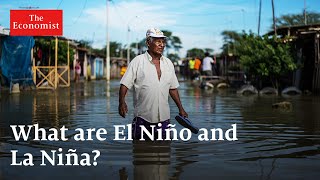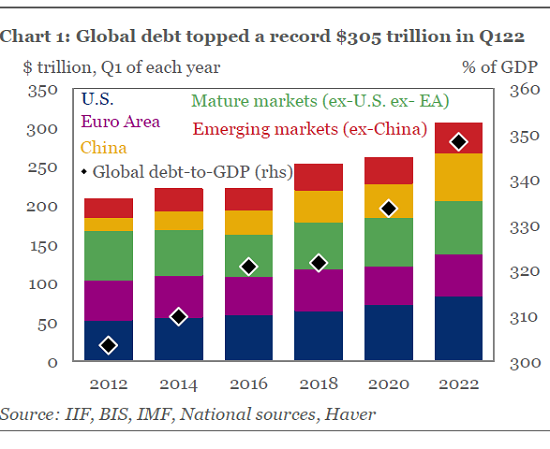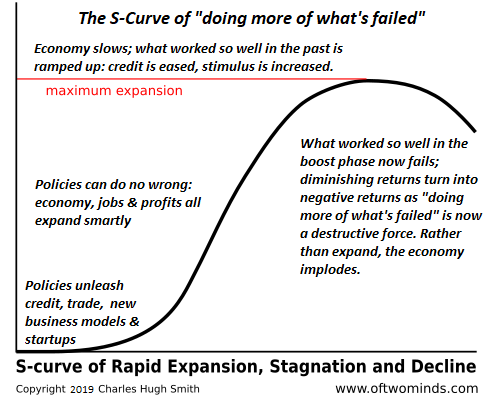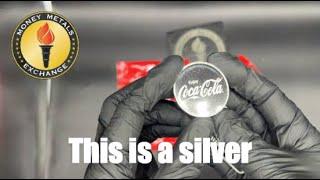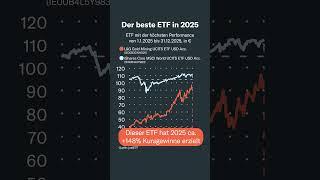Category Archive: 5) Global Macro

Heatwaves: how hot can it get?
Heatwaves are becoming more frequent, more intense and more deadly. But what is a heatwave, why are they so dangerous and how are they affected by climate change?
00:00 - What are heatwaves?
01:40 - How do heatwaves form?
05:28 - How heatwaves kill
08:40 - How to prepare for heatwaves
10:17 - What is the impact of climate change?
Sign up to The Economist’s daily newsletter: https://econ.st/3QAawvI
Can Kolkata’s street life survive India’s...
Read More »
Read More »
Can Ron DeSantis beat Donald Trump?
After big wins in last year’s midterms, Ron DeSantis looked like Donald Trump’s main rival for the Republican presidential nomination. Since then, his popularity has fluctuated—can DeSantis still win?
Sign up to The Economist’s daily newsletter: https://econ.st/3QAawvI
Read more of our coverage on Ron DeSantis: https://econ.st/3N3HvK1
Why Florida is important to Ron DeSantis’s presidential chances: https://econ.st/3q3jbyB
Why Florida is...
Read More »
Read More »
What’s the future of crypto?
The financial revolution once promised by cryptocurrencies has been knocked off course by regulators and allegations of fraud. So what does the future hold for crypto?
Cypherpunk stills and Eric Hughes interview under creative commons licence: https://econ.st/3Iijagn
00:00 - The crypto party is over
01:06 - The history
03:30 - What is crypto?
04:38 - Uses around the world
06:07 - Layer 2 solutions
07:12 - Web3
08:51 - Data and privacy
10:04 -...
Read More »
Read More »
Turkey 2023: will the economy decide the election?
For the first time in his 20-year term, President Erdogan faces a run-off in Turkey’s presidential election. Our Turkey correspondent, Piotr Zalewski, explains why the economy might be a deciding factor on voters' minds.
00:00 - Turkey’s run-off elections
00:49 - High stakes
01:26 - Tactics
02:31 - The price of victory
What might happen next in Turkey’s election: https://econ.st/3BsXWZE
Sign up to The Economist’s daily newsletter:...
Read More »
Read More »
What is the debt ceiling?
As America's government hits the debt ceiling, US politics has become a multi-trillion dollar game of chicken. If neither side backs down, America could default on its debts for the first time in history, sparking global economic turmoil. What is the debt ceiling, and how can this crisis be resolved?
Sign up to The Economist’s daily newsletter: https://econ.st/3QAawvI
To read more of our covering on the US economy: https://econ.st/3pyttGT
There...
Read More »
Read More »
Financial Savvy Ways To Thrive In The Auto Market
The auto market can be challenging and unpredictable, but with the right strategies and insights, automotive business owners can thrive. This article will explore the financial savvy ways to succeed in the auto market, focusing on understanding the current landscape, saving money, using modern financial tools and AI, and navigating warranties and service contracts. …
Read More »
Read More »
The Economist’s cartoonist on humanity’s greatest threats
Ever wonder how Kevin Kallaugher—The Economist’s resident cartoonist—comes up with his illustrations? Here our cameras capture KAL at work on the weekly cartoon as he talks about his approach to capturing one of the biggest concerns of the moment.
Read More »
Read More »
Hurricanes: the science behind the destruction
Hurricanes are among the most dangerous natural phenomena on earth, causing billions of dollars of damage and destroying lives every year. But what turns a peaceful patch of ocean into the planet's most destructive force, and how is this process being affected by climate change?
00:00 - What are tropical cyclones?
00:46 - The history of tropical cyclones
02:06 - How do they form?
04:33 - What happens when they reach land?
07:13 - What is the...
Read More »
Read More »
The Coronation: King Charles’s finances unpacked
King Charles III is estimated to have around £600m in private wealth. In the lead-up to his coronation, The Economist explores where Britain's royal family actually gets its money from.
Sign up to The Economist’s daily newsletter: https://econ.st/3QAawvI
To read more about Royal finances: https://econ.st/41b7J0B
Watch: What to expect from King Charles III: https://econ.st/3AU9RPL
What could King Charles mean for Royal finances:...
Read More »
Read More »
Behind the data: the secret to songwriting
With 25 Billboard Hot 100 number one hits to his name, Max Martin is effectively the king of pop music. We wanted to find the key to his success—with a little help from a lot of data.
00:00 - Behind the data
00:39 - Our dataset
01:53 - Was Max Martin right?
03:32 - Why intros are shorter now
To read our daily chart on hit-maker Max Martin: https://econ.st/40EN0TH
For more of The Economist’s data journalism: https://econ.st/3KsCaud
Sign up to...
Read More »
Read More »
How to stop AI going rogue
Artificial intelligence is improving so fast that no one knows what it might be capable of. It brings huge opportunities, but also huge risks. Arjun Ramani, The Economist's global business and economics correspondent, explains what could go wrong.
00:00 - How could AI go wrong?
01:12 - What are the risks?
03:11 - How to practise AI safety
04:42 - What are the benefits?
Sign up to The Economist’s daily newsletter: https://econ.st/3QAawvI
How...
Read More »
Read More »
Why are wars getting longer?
The outbreak of violence in Sudan isn’t an anomaly; the world's civil wars are growing longer and deadlier. Robert Guest, The Economist’s deputy editor, explains why.
00:00 - Civil wars are getting longer
00:58 - Complexity
02:14 - Criminality
03:12 - Climate change
04:52 - The road to peace?
Sign up to The Economist’s daily newsletter: https://econ.st/3QAawvI
The world’s deadliest war last year wasn’t in Ukraine: https://econ.st/3MRXH0T
Why...
Read More »
Read More »
How El Niño and La Niña cause extreme weather
El Niño and La Niña are opposite states of one of Earth’s most important climate processes, the El Niño Southern Oscillation, or ENSO. It can lead to devastating weather events all over the world. But how does it work, what kinds of extreme weather does it cause and how is global warming affecting it?
00:00 - What is ENSO’s neutral state?
03:15 - What is El Niño?
07:24 - What is La Niña?
10:36 - ENSO and climate change
Sign up to The Economist’s...
Read More »
Read More »
Beyond Good Friday: the future of peace in Northern Ireland
Twenty five years ago the Good Friday Agreement brought peace to Northern Ireland. But while the treaty has saved thousands of lives, it has also resulted in a brittle and unstable government. Could this jeopardise the future of peace?
00:00 - The Good Friday Agreement then and now
02:49 - Northern Ireland’s history
03:56 - What did the Good Friday Agreement change?
05:41 - The impact of Brexit
07:07 - The legacy of violence
09:16 - Modern day...
Read More »
Read More »
Israel’s protests: why Bibi’s delay is an opportunity for Israel
Israel’s prime minister, Binyamin Netanyahu, has pressed pause on his power-grabbing judicial reforms. Now a strife-torn country has a chance to rethink.
#israel #israelprotest
00:00 - Israel is in chaos
00:34 - Democracy is working in Israel
01:52 - Israel’s constitutional question
03:35 - The depth of division might undermine this opportunity
To read more about what’s happening in Israel: https://econ.st/3M3uBeJ
For our most recent...
Read More »
Read More »
The Everything Bubble and Global Bankruptcy
The resulting erosion of collateral will collapse the global credit bubble, a repricing/reset that will bankrupt the global economy and financial system. Scrape away the complexity and every economic crisis and crash boils down to the precarious asymmetry between collateral and the debt secured by that collateral collapsing.
Read More »
Read More »
AI Chatbots: What they really mean for the future
With the arrival of generative AI chatbots, artificial intelligence no longer seems the preserve of science fiction. Now that the bots are talking back, what does it mean for the future of the internet—and our relationship with machines?
00:00 - Chatbots are changing the internet
01:02 - How do chatbots work?
03:40 - The problems with today’s chatbots
06:40 - The ELIZA effect
07:46 - Replika AI
09:55 - What might future chatbots be able to do?...
Read More »
Read More »
Funny Things Happen on the Way to "Restoring Financial Stability"
We can also predict that the next round of instability will be more severe than the previous bout of instability. Everyone is in favor of "doing whatever it takes" to "restore financial stability" when the house of cards starts swaying, but funny things happen on the way to "Restoring Financial Stability."
Read More »
Read More »
Silicon Valley Bank: what really went wrong?
Since the collapse of Silicon Valley Bank, American regulators have pulled out all the stops to protect depositors. But the scramble to ensure stability has exposed serious flaws in America’s banking architecture. What comes next?
00:00 - Silicon Valley Bank has collapsed
00:38 - What has happened?
02:07 - How have regulators reacted?
03:12 - What does this mean for banking?
Read our briefing about the SVB collapse: https://econ.st/3TbN8ap...
Read More »
Read More »














